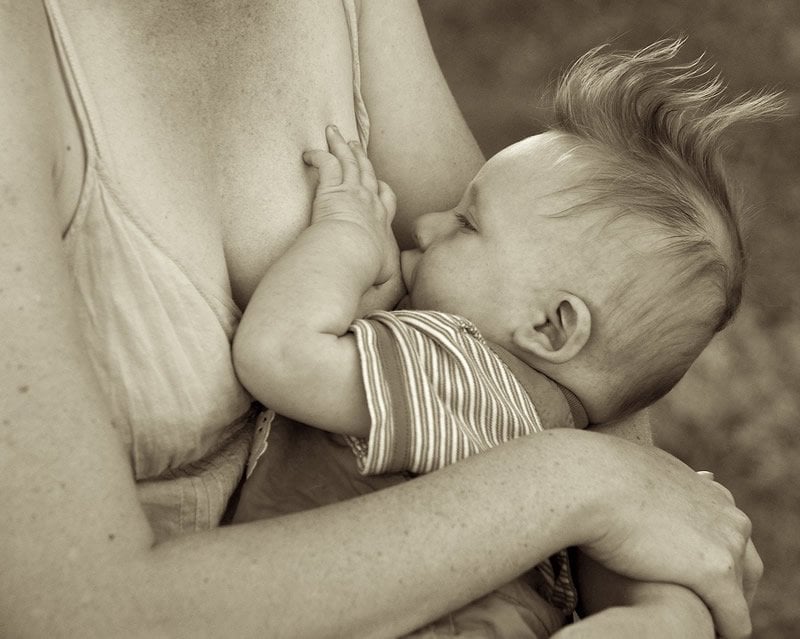Summary: 15% of breastmilk samples from mothers who carry the malaria parasite, but who are not symptomatic of the disease, contain antigens. Researchers propose these mothers may be able to naturally vaccinate their children against malaria via breastfeeding.
Source: University of Western Australia
In a world first, researchers from The University of Western Australia have taken the first step towards understanding whether it may be possible for breastfeeding mothers to naturally vaccinate their babies against malaria – one of the world’s deadliest contagious diseases.
The study was led by Professor Valerie Verhasselt, from UWA’s School of Molecular Sciences, and Dr Thomas Egwang from Uganda, with UWA’s Dr Lieke van den Elsen as first author. Professor Verhasselt said the research introduced a new concept that could be tested to prevent the spread of malaria.
“More than 200 million cases of malaria are reported each year around the world, with the majority in Africa,” Professor Verhasselt said.
“Infants aged under five years account for two-thirds of all malaria deaths, highlighting the need for early and efficient prevention of malaria infection.”
She said breastfeeding was the most efficient way to prevent childhood disease and death related to respiratory and gastro-intestinal infectious disease.
“Before this study, there was conflicting evidence on whether breastfeeding could prevent malaria and we wanted to find a way to ensure malaria prevention through breastfeeding,” she said.
“Based on our longstanding expertise in the field of allergy prevention through breastfeeding, we propose the original hypothesis that the presence of malaria antigen (proteins) in breastmilk stimulates anti-malarial immune defence and reduces malaria risk in breastfed infants. This would be a way to naturally vaccinate infants.”
The researchers investigated whether two proteins from malaria parasites were detectable in the breastmilk of mothers from Uganda, a country where malaria is widespread.
The research, published today in JAMA Pediatrics, shows for the first time that 15 per cent of breastmilk samples from mothers who carry the malaria parasites without symptoms, contain malaria antigens in their breastmilk.
They propose these mothers may be the ones able to naturally vaccinate their child against malaria as their breastmilk would contain malaria proteins together with additional factors specifically adapted to the babies’ immune system.

Professor Verhasselt, who is also the Larssen-Rosenquist Chair in Human Lactology at UWA, said the next step was to carry out clinical trials to assess immunological outcomes and malaria risk in infants exposed to one or multiple malaria antigens through breastmilk.
“We could then propose to vaccinate breastfeeding mothers to increase levels of malaria antigen in breastmilk, ensuring vaccination and long-term protected of their child,” she said.
Source:
University of Western Australia
Media Contacts:
David Stacey – University of Western Australia
Image Source:
The image is in the public domain.
Original Research: Open access
“Malaria Antigen Shedding in the Breast Milk of Mothers From a Region With Endemic Malaria”. Valerie Verhasselt et al.
JAMA Pediatrics doi:10.1001/jamapediatrics.2019.5209.
Abstract
Malaria Antigen Shedding in the Breast Milk of Mothers From a Region With Endemic Malaria
More than 200 million cases of malaria occur yearly, with most in Africa, where infants younger than 5 years account for two-thirds of all malaria deaths.1 This highlights the need for successful prevention of malaria infection, especially in early life. Breastfeeding is the most efficient way to prevent child morbidity and mortality attributable to respiratory and gastrointestinal tract infectious diseases. In contrast, there is conflicting evidence on malaria prevention by breastfeeding. Mouse and human data have shown that the presence of foreign antigens in breast milk, such as allergens or viral antigens, could elicit strong immune responses in offspring who are breastfed.6 Therefore, we propose what is to our knowledge an original hypothesis: the presence of malaria antigen in breast milk stimulates antimalarial immune defenses and reduces malaria risk in infants who are breastfed. Here, as a critical first step to address this hypothesis, we investigated whether Plasmodium falciparum histidine-rich protein 2 (pHRP-2) and lactate dehydrogenase (pLDH) are detectable in the breast milk of mothers from Uganda, a country with endemic malaria.






